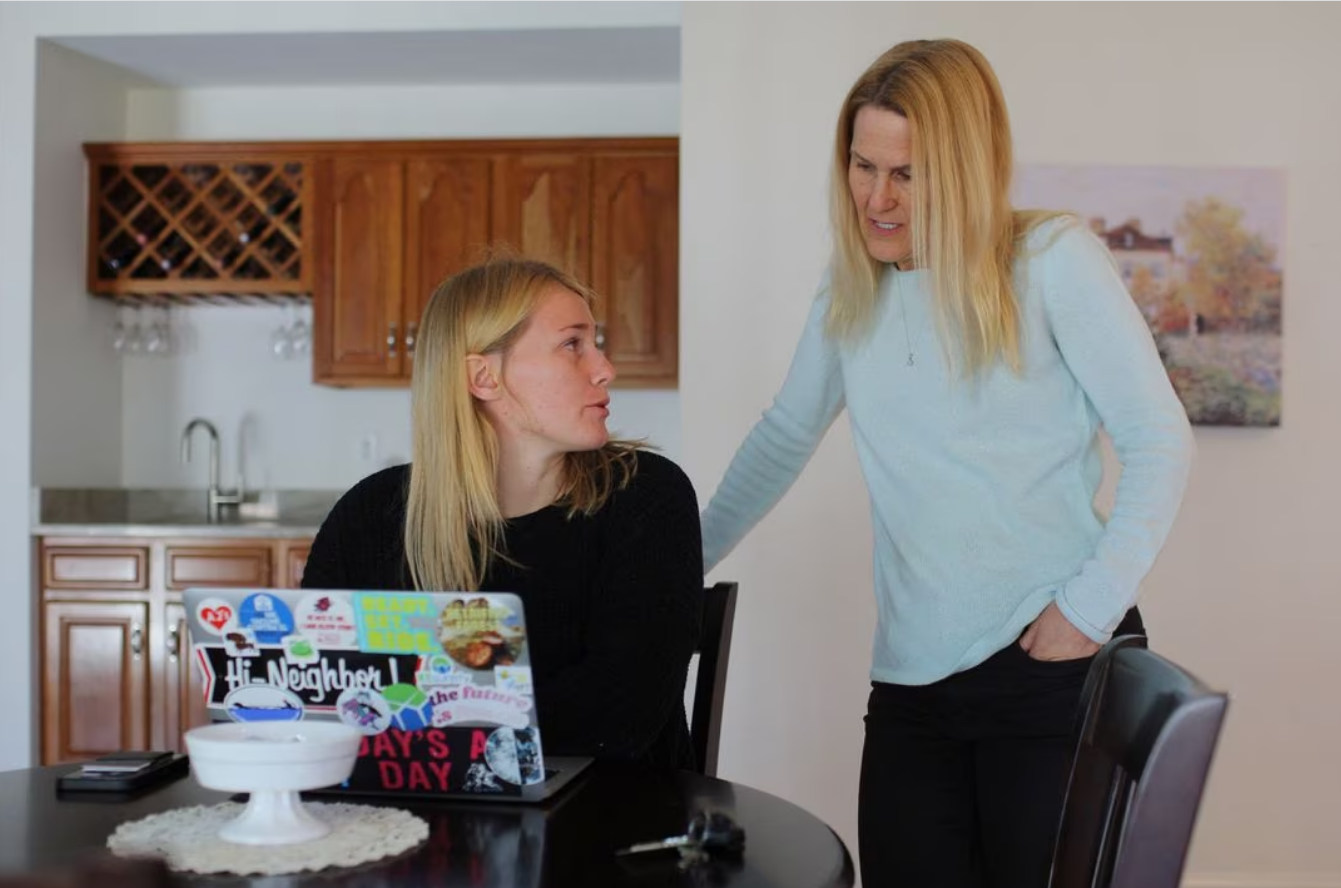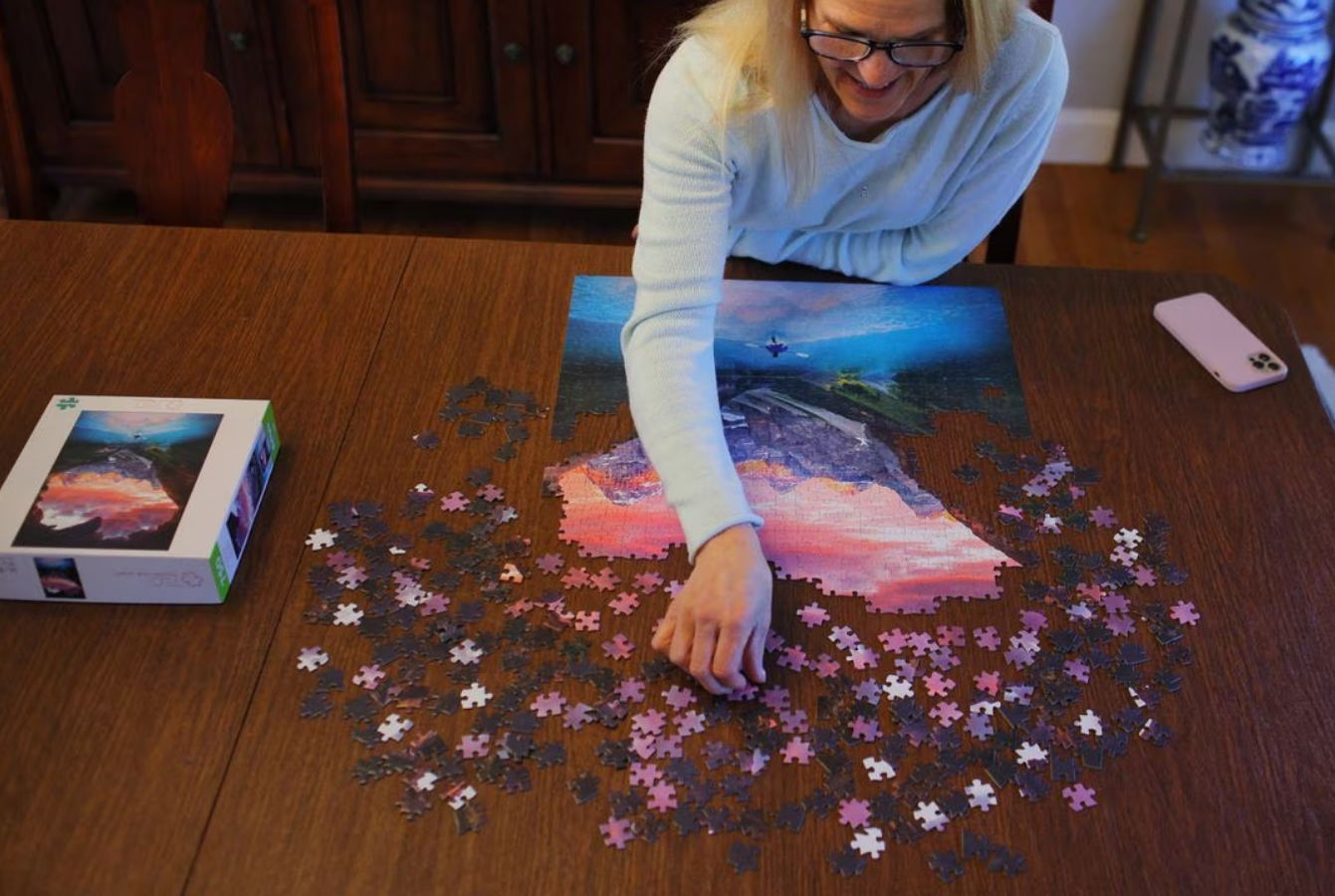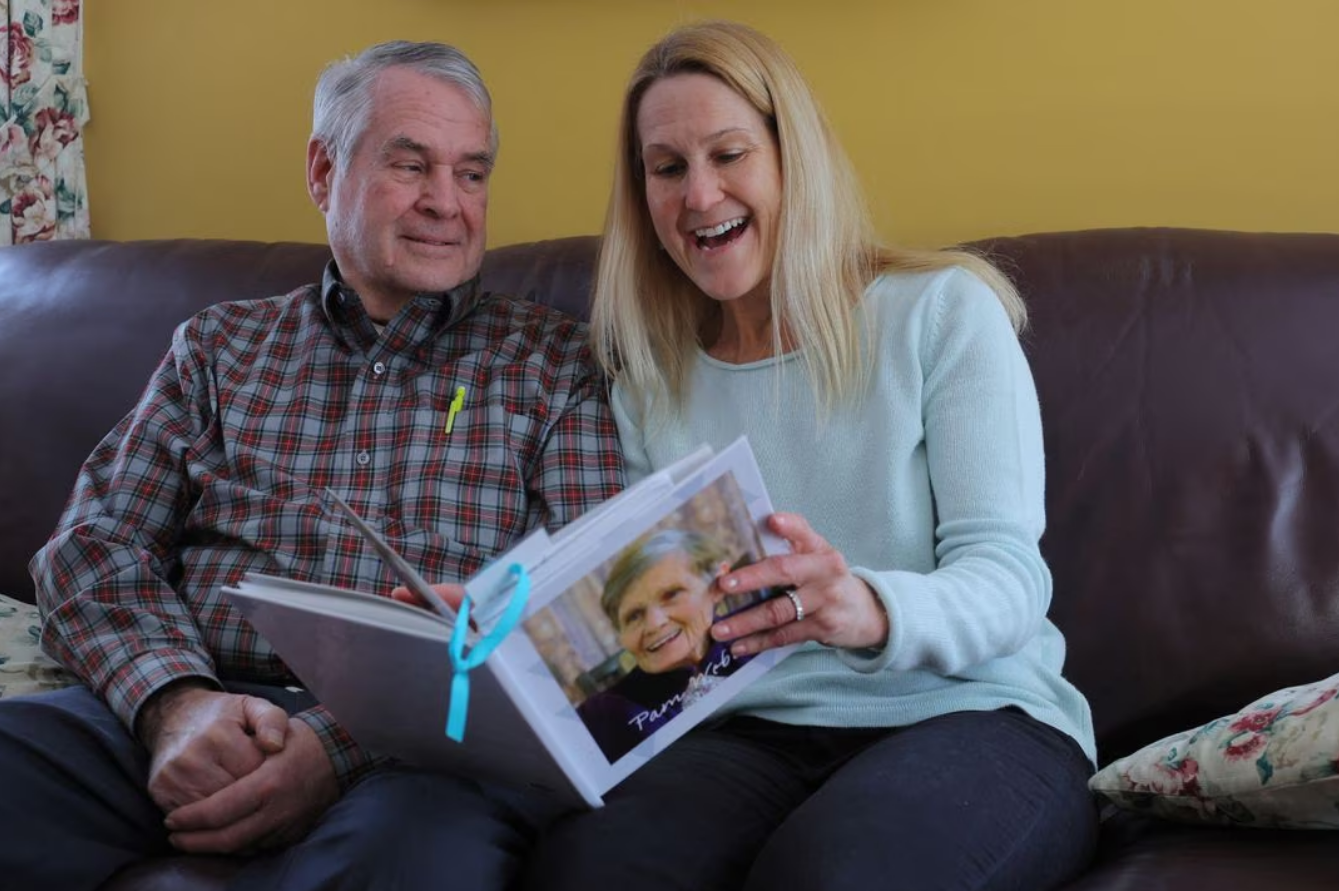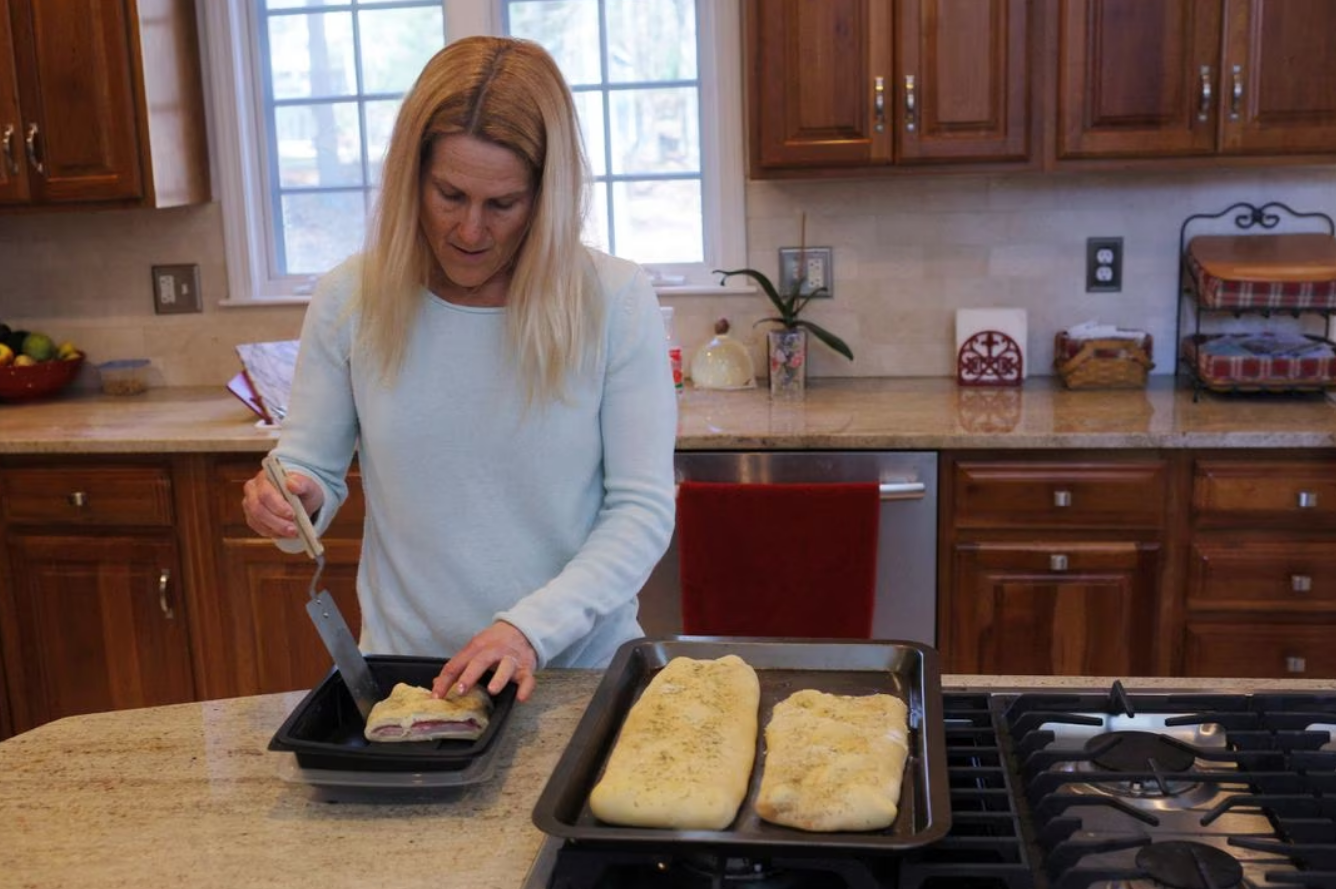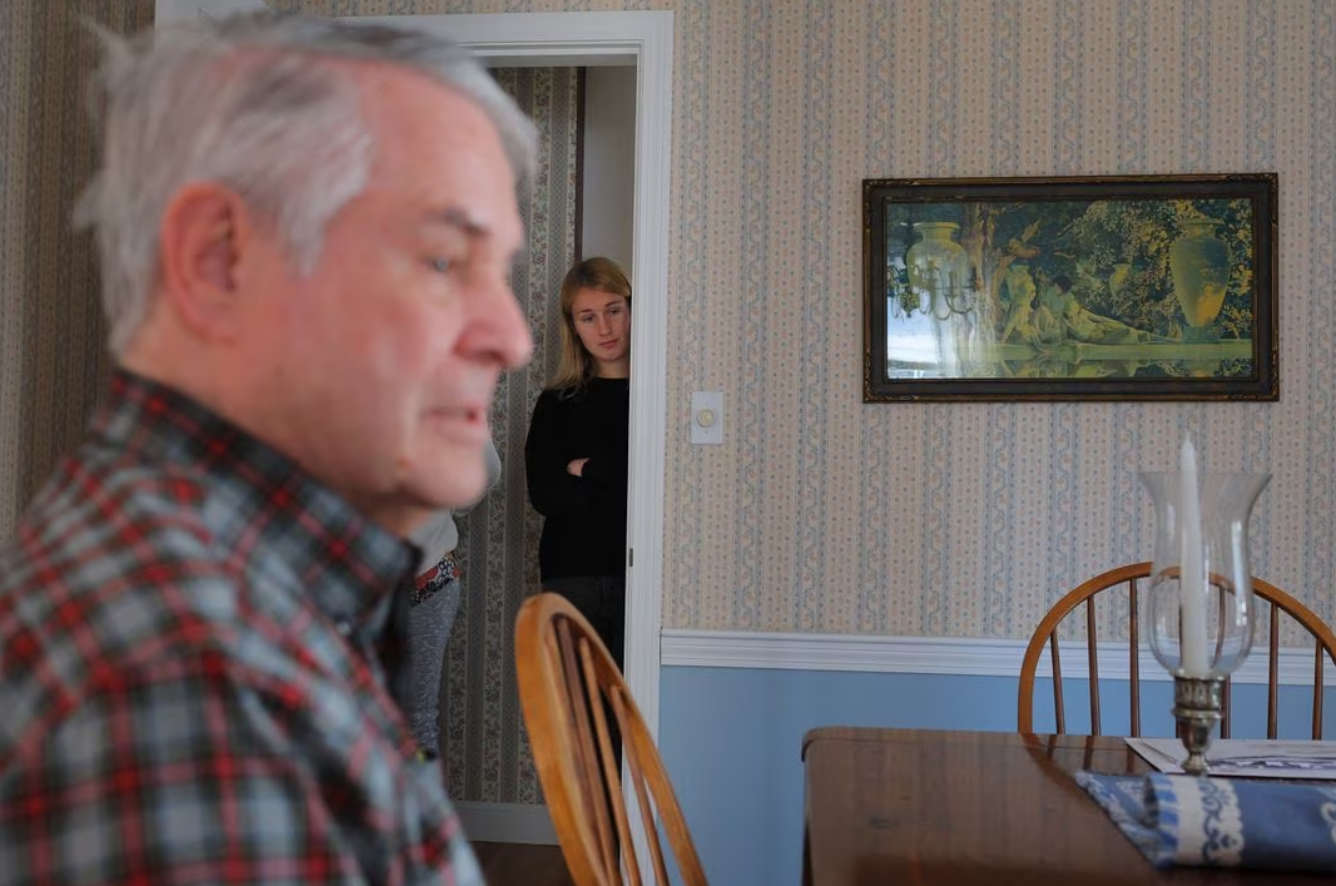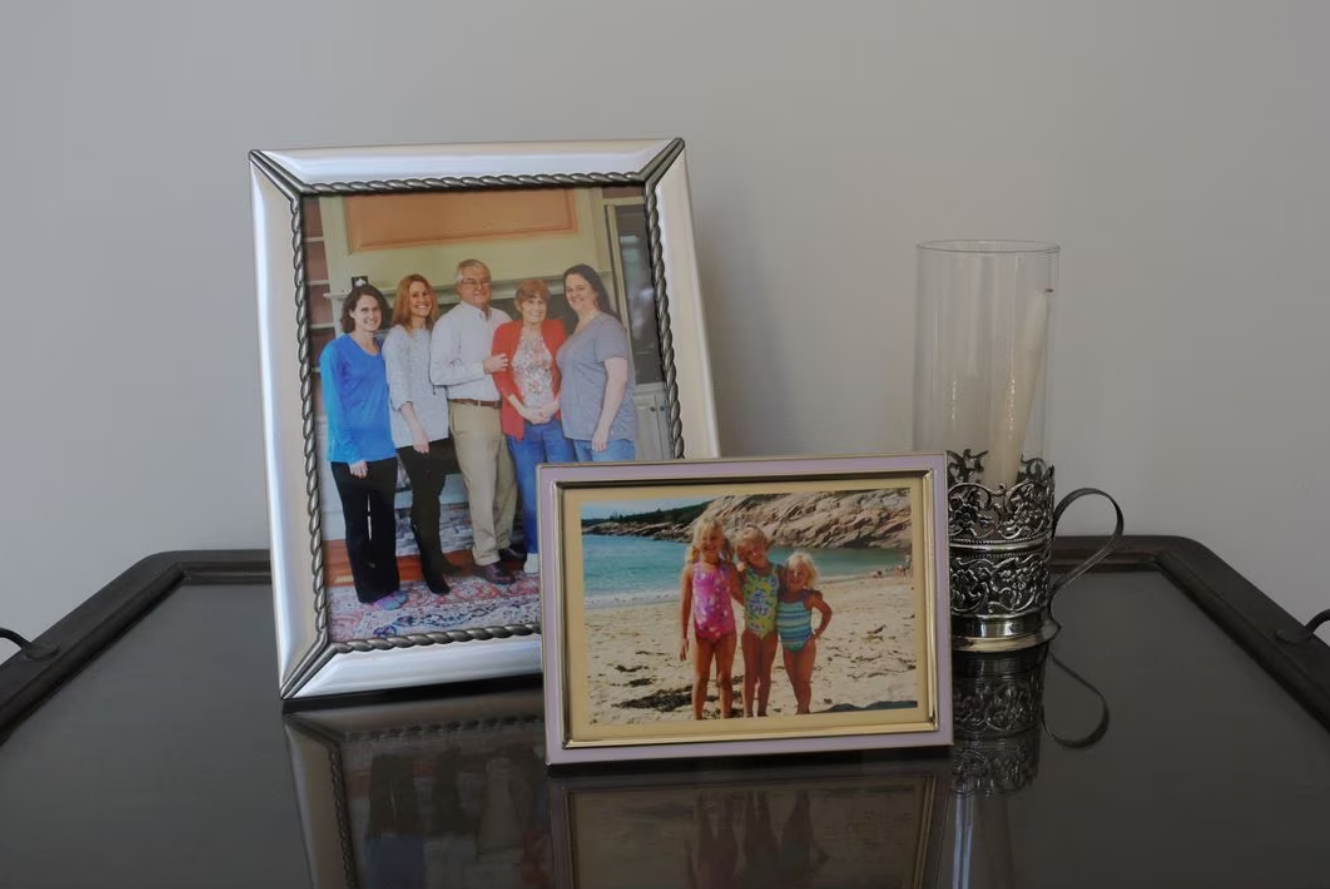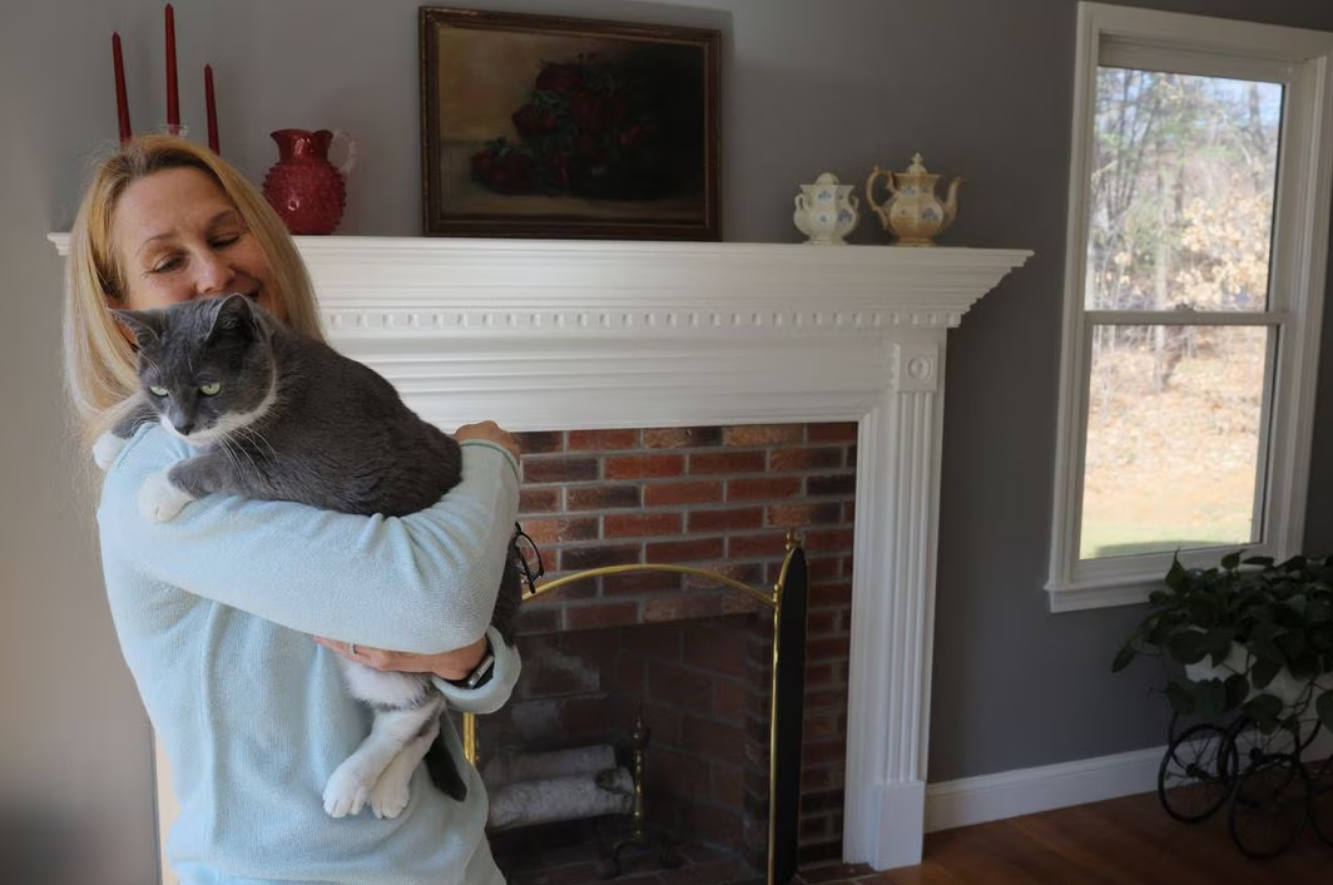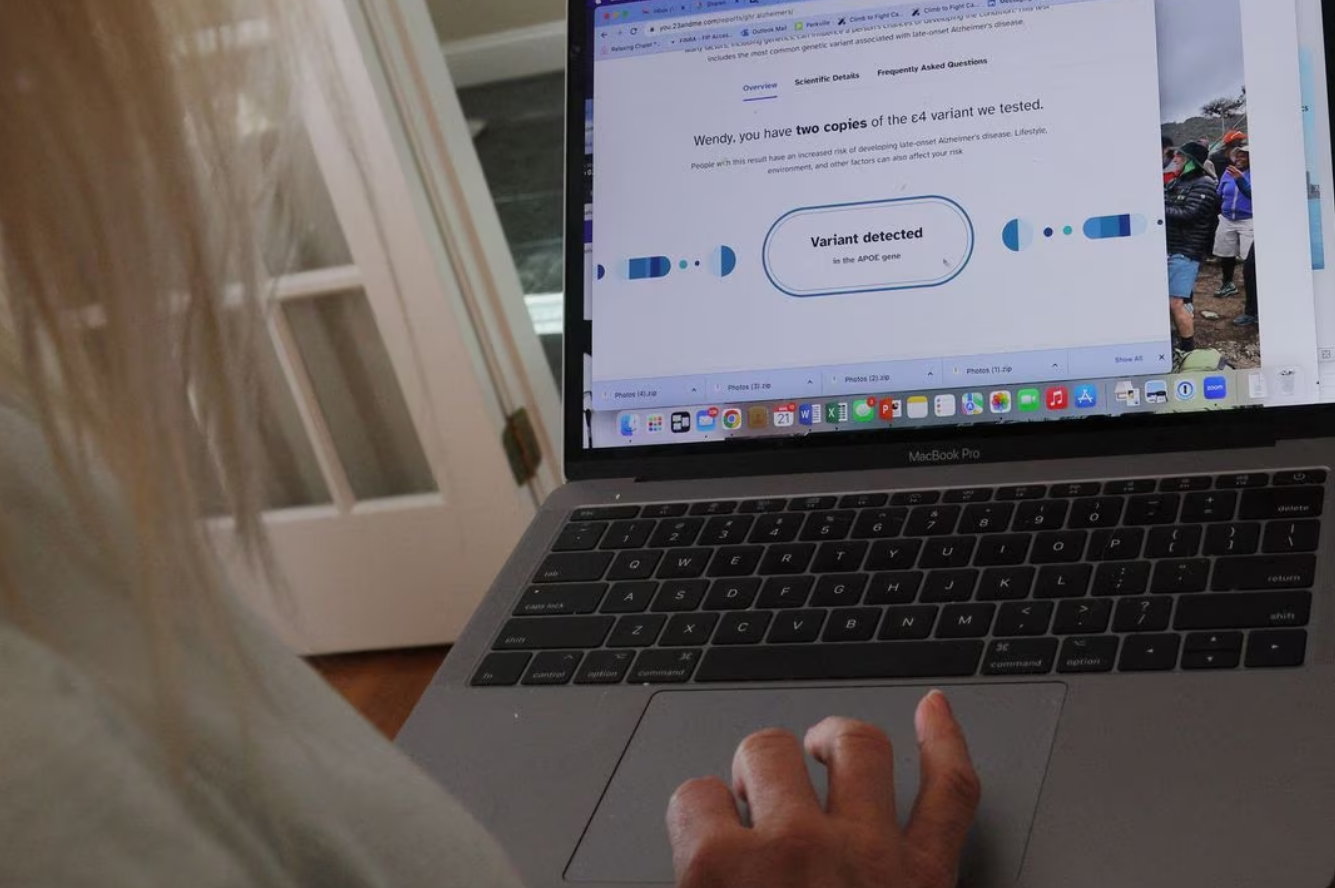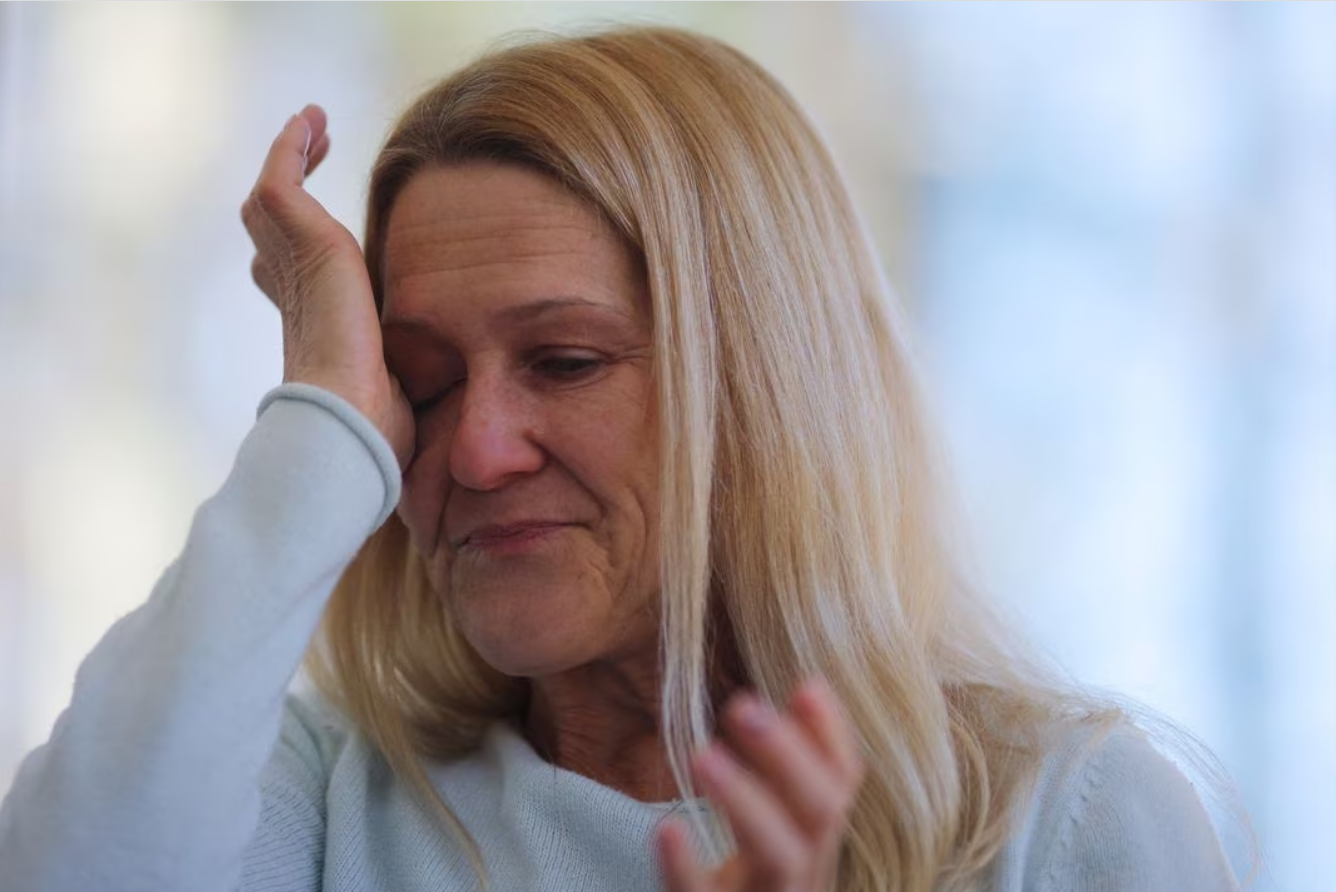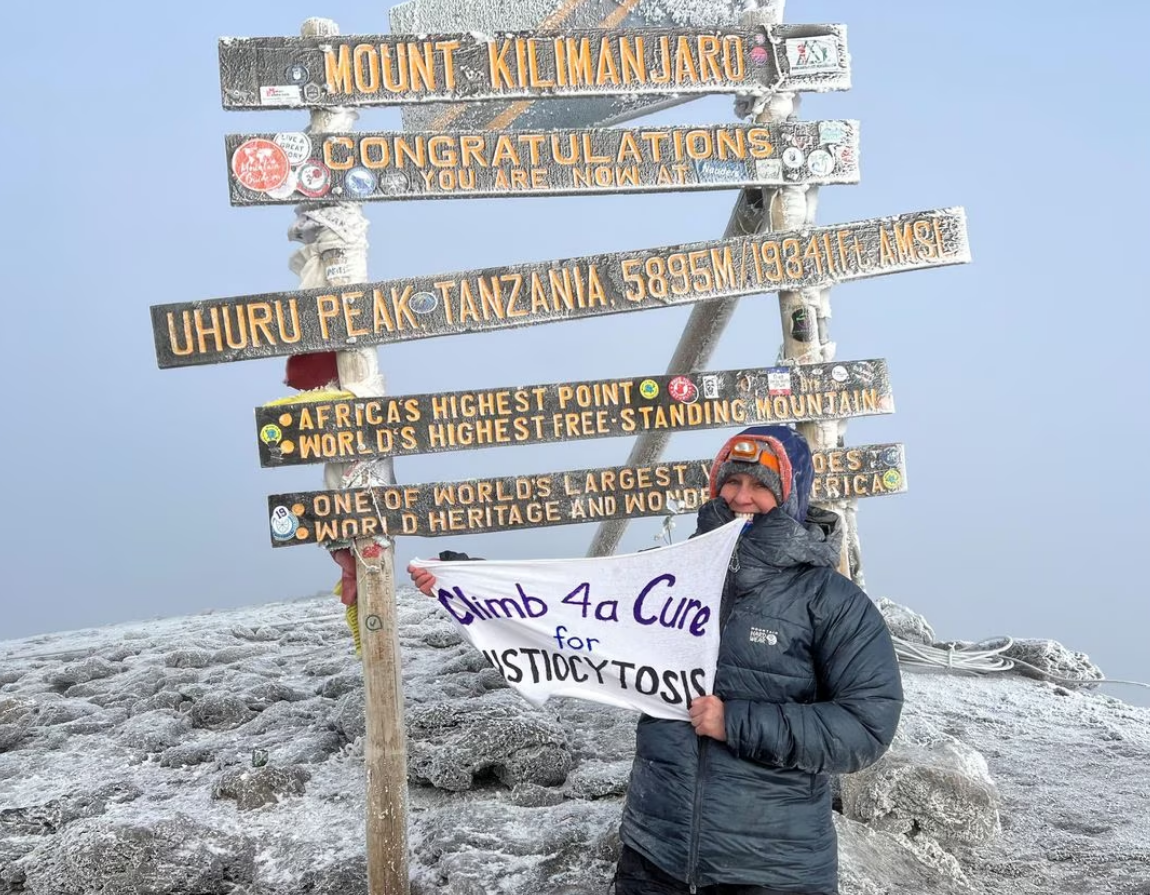CHICAGO - Wendy Nelson watched her mother slowly die of Alzheimer's disease, unable to move or swallow at the end. "All her pleasures of life were gone," Nelson said.
Grief-stricken, terrified of facing the same death, Nelson ordered 23andMe(ME.O) DNA test kits for Christmas 2020 for herself and three adult daughters.
A Boston-based biotech executive who is now 52, Nelson hoped the kits would provide reassurance. They delivered the worst possible result. Nelson has two copies of the APOE4 gene variant that increases the risk of Alzheimer's, which means her risk of developing the disease is eight to 12 times higher than people with the most common version of APOE.
"It totally backfired," she said.
Millions of Americans are expected to test for Alzheimer's in the coming years – some like Nelson, with at-home test kits, others at labs, as new drugs for people with early Alzheimer's from partners Eisai Co Ltd (4523.T) and Biogen Inc (BIIB.O) and Eli Lilly and Co (LLY.N) usher in sweeping change in approaches to treatment of the disease.
Testing for the APOE4 gene variant among Americans being treated for Alzheimer's has more than doubled from a year ago, an exclusive analysis of medical records for Reuters by health data firm Truveta found. The increase was driven by the new treatments that promise to slow the progression of the disease, but also carry risks, especially for people like Nelson carrying two copies of APOE4.
Yet few support services are available to help people deal with the implications of APOE4 testing, according to interviews with more than a dozen neurologists and genetic counselors. Alzheimer's patients and caregivers face a shortage of genetic counselors to explain the tests and help them navigate the psychological, medical, financial and legal consequences.
Eisai and Biogen's Leqembi, which arrived on the market in January, costs $26,500 a year and is not covered by Medicare outside of clinical trials. Medicare has said it will expand coverage if the drug is granted full U.S. approval, expected this summer.
"When you learn that information, you're potentially learning information about your siblings, about your children," said Emily Largent, a bioethicist and health policy expert at the University of Pennsylvania Perelman School of Medicine.
"People describe feeling existential dread."
As a scientist, Nelson understood intellectually what her APOE4 results meant, but they created emotional havoc for her family.
She had inherited one copy of APOE4 from her mother and the other from her father, who was showing no symptoms of Alzheimer's at the time.
When her father's memory began to fail a year later, one of her two sisters doubted it could be Alzheimer's, Nelson said. Nelson knew he had to have the disease, because of her genetic test results.
The tests also showed that each of Nelson's three adult daughters had one copy of APOE4, which triples or quadruples the risk of developing the disease - confronting them with their own Alzheimer's risks along with their mother's.
Nelson's daughter, Lindsey, 22, and a fourth year nursing student at New York University, said she was traumatized when, even before testing, Nelson talked about exploring assisted suicide rather than suffer her mother’s fate.
"I would yell at her, cover my ears and run away," Lindsey said. "There are many complicated emotions involved."
Nelson's eldest daughter, Lexi, 24, who works in data analytics, turned to research showing that lifestyle changes such as weight lifting can improve cognitive function. "I've tried really hard to improve my sleep, I’m exercising a lot," she said.
Her youngest, Pam, 20, a sophomore biology major at UCLA, said she takes comfort in knowing that her mother's result is not a diagnosis. "It's just a risk factor, and there are many other factors that influence what will happen."
Leqembi is not suitable for Nelson, who is not symptomatic. Even if she were eligible, she said she is not a fan because of the risk of brain swelling, which is higher for people with two copies of APOE4.
Nelson is pinning her hopes on an experimental pill from Alzheon Inc, which is being tested in people with early Alzheimer's who have two copies of APOE4.
She is working her way through a bucket list of trips. In February, she climbed Mt. Kilimanjaro to raise money for a cancer charity, and she would like to visit Patagonia, the Greek Islands, South Africa, possibly Antarctica.
If treatment fails, she said she has her "exit plan": legal euthanasia through a clinic in Switzerland. "I do not want to live the way my mom had to live her last five years of life. She was miserable," she said.
|
|
| Wendy Nelson does a puzzle at her home in Foxborough, Massachusetts, U.S., March 21, 2023. Wendy Nelson's mother died from Alzheimer's disease, her father suffers from it, and genetic tests show that Wendy carries two APOE4 gene variants, and her three daughters each carry one APOE4 gene variant, indicating an increased risk of Alzheimer's disease. Photo: Reuters |
|
|
| Wendy Nelson looks at an album of family photographs with her father Richard, who has Alzheimer's disease, at his home in Foxborough, Massachusetts, U.S., March 21, 2023. Wendy Nelson's mother and Richard's Webber's wife Pamela, who is on the cover of the photo album, died from Alzheimer's disease, and genetic tests show that Wendy carries two APOE4 gene variants, and her three daughters each carry one APOE4 gene variant, indicating an increased risk of Alzheimer's disease. Photo: Reuters |
The testing revolution
Until recently, most doctors tended not to order genetic tests to determine Alzheimer's risk, because there were no effective treatments to slow or prevent the disease.
That changed with Leqembi, which was shown to reduce the rate of cognitive decline by 27% in patients with mild Alzheimer's. Eli Lilly's donanemab is in clinical trials with results expected by June.
Both drugs remove the buildup in the brain of amyloid plaques associated with Alzheimer's, and are viewed as a first step towards even more effective treatments. Both can cause swelling and microbleeds in the brain. US regulators recommend genetic testing before starting treatment with Leqembi.
"With this drug, it behooves us to check," said Dr. Sarah Kremen, a neurologist at Cedars-Sinai in Los Angeles.
In the four months ahead of U.S. approval of Leqembi in January, APOE4 testing among people over 55 who visited a doctor within the last 30 days increased 125%. From September 2022 to January 2023, the rate averaged 1.4 tests per 100,000 patients, compared with 0.6 tests per 100,000 patients in the same period a year earlier, the analysis by Seattle-based Truveta found.
The analysis was based on a review of medical records from 7.9 million adults at 28 major U.S. hospital systems. It does not include at-home consumer tests.
The National Institutes of Health estimates up to 25% of people in the United States have one copy of APOE4 and up to 5% have two copies.
Yet there is a shortage of genetic counselors to help families deal with the implications of having two copies of APOE4.
A 2018 study in the European Journal of Human Genetics found the U.S. had just one trained genetic counselor per 82,000 people. The United Kingdom had 1 per 193,500.
Banner Alzheimer's Institute in Phoenix, which is testing Lilly's donanemab, is researching an interactive online platform to deliver APOE results to volunteers being screened for enrollment in the trial.
"We needed a scalable way to warn people about the potential benefits and risks of genetic disclosure," said Dr. Eric Reiman, Banner's director.
While the U.S. Genetic Information Nondiscrimination Act (GINA) bans discrimination in employment and health insurance, it does not cover long-term care and disability and life insurance.
Some members of families with increased genetic risk of Alzheimer's say it might be better not to know at all.
Dovie Bryant, 77, who is taking part in the Lilly trial, lost her mother to Alzheimer's in 2012.
When she shared with her five siblings that she had one copy of the APOE4 variant, none wanted to find out their own status.
Her brother Jim Painter, 71, said he feared testing could make it harder to pass a health screening to move into a retirement community that offers increasing levels of care as a person ages.
"That might be a red flag," Painter said.
|
|
| Wendy Nelson prepares a calzone to take to her father, who has Alzheimer's disease and lives in his own home, in Foxborough, Massachusetts, U.S., March 21, 2023. After the death of her mother from Alzheimer's disease, Wendy Nelson took a genetic test and found she carries two APOE4 gene variants, indicating an increased risk of Alzheimer's disease. Photo: Reuters |
|
|
| Lexi Nelson looks on as her grandfather Richard, who has Alzheimer's disease, talks to her mother Wendy at his home in Foxborough, Massachusetts, U.S., March 21, 2023. Lexi Nelson's grandmother, Wendy Nelson's mother and Richard Webber's wife Pamela died from Alzheimer's disease, and genetic tests show that Wendy carries two APOE4 gene variants, and her three daughters each carry one APOE4 gene variant, indicating an increased risk of Alzheimer's disease. Photo: Reuters |
|
|
| Framed family photographs show Wendy Nelson with her sisters and their parents, as well as her three children, in the foyer of her home in Foxborough, Massachusetts, U.S., March 21, 2023. Wendy Nelson's mother died from Alzheimer's disease, her father suffers from it, and genetic tests show that Wendy carries two APOE4 gene variants, and her three daughters each carry one APOE4 gene variant, indicating an increased risk of Alzheimer's disease. Photo: Reuters |
|
|
| Wendy Nelson holds her cat Piper, in Foxborough, Massachusetts, U.S., March 21, 2023. Nelson's mother died from Alzheimer's disease, her father suffers from it, and genetic tests through 23andMe shows that Wendy carries two APOE4 gene variants, and her three daughters each carry one APOE4 gene variant, indicating an increased risk of Alzheimer's disease. Photo: Reuters |
|
|
| Wendy Nelson shows Reuters the results of a genetic test she took through 23andMe, which revealed that she carries two APOE4 gene variants, indicating an increased risk of Alzheimer's disease, at her home in Foxborough, Massachusetts, U.S., March 21, 2023. Wendy Nelson's mother died from Alzheimer's disease, her father suffers from it, and genetic tests also show that her three daughters each carry one APOE4 gene variant. Photo: Reuters |
|
|
| Wendy Nelson, whose mother died from Alzheimer's disease and father suffers from it, becomes emotional when talking about the potential of also getting the disease and how that would affect how she would want the end of her life to play out, during an interview with Reuters at her home in Foxborough, Massachusetts, U.S., March 21, 2023. A genetic test through 23andMe shows that Wendy carries two APOE4 gene variants, and her three daughters each carry one APOE4 gene variant, indicating an increased risk of Alzheimer's disease. Photo: Reuters |
|
|
| Wendy Nelson stands at Uhuru Peak of Mt. Kilimanjaro, the highest point on the continent of Africa, during a climb to raise funding for cancer research, a bucket list trip she took after a genetic test showed that she carries two copies of the APOE4 gene variant that significantly increases her risk for Alzheimer's disease, in Tanzania, February 17, 2023. Photo: Reuters |



